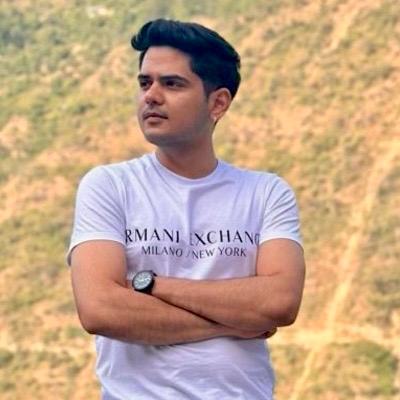By Department
By Procedure
- Transurethral Incision of the Prostate (TUIP)
- Lithotripsy
- Varicocele Intervention
- Anal Sphincteroplasty
- Sling Surgery
- Bladder Instillation
- Burch Colposuspension
- Cystectomy (Bladder Removal)
- Cystolithotripsy
- Genitourinary Reconstruction
- Greenlight Laser Treatment of BPH
- Hydrocele Surgery
- Ileal Conduit
- Laser Prostatectomy
- Mitrofanoff Procedure
- Optical Urethrotomy
- Orchidectomy
- Orchidopexy
- Penis Enlargement Surgery
- Prostate Biopsy
- Laser Photo-Vaporization of the Prostate (PVP)
- Radical Cystectomy
- Robotic Ureteral Reimplantation
- Sacral Nerve Stimulation (SNS)
- Transperineal Biopsy
- Transrectal Ultrasound (TRUS)
- Transurethral Resection of Bladder Tumor (TURBT)
- Transurethral Resection of the Prostate (TURP)
- Ureteral Reimplantation Surgery
- Ureteral Stent Placement
- Ureteral Stenting and Nephrostomy
- Ureteroscopy (URS)
- Ureteroscopy and Laser Lithotripsy (URSL)
- Urethral Catheterisation Device (UCD)
- Urethral Stricture Surgery
- Urethroplasty
- Microscopic Varicocele Surgery
By Diseases
Best Doctors
- Dr. Samit Chaturvedi
- Dr. Deepak Kumar Rathi
- Dr. Anshuman Aggarwal
- Dr. Suresh Kr Rawat
- Dr. Shreeharsha Mallappa Awati
- Dr. Rajesh Kumar Ahlawat
- Dr. Gagan Gautam
- Dr. Pankaj Wadhwa
- Dr. Prasun Ghosh
- Dr. Ashwin Sunil Tamhankar
- Dr. Abraham Mammen
- Dr. Sandeep Harkar
- Dr. Roshan Snehith
- Dr. B Karthik Rao
- Dr. Aman Gupta
- Dr. Mohan Keshavamurthy
- Dr. Premkumar Krishnappa
- Dr. P P Singh
- Dr. Rajiv Yadav
- Dr. Varun Mittal
- Dr. Amit Singh Malhotra
- Dr. Rajiv Goel
- Dr. Amit Kumar Tiwari
- Prof. Dr. Ajit Saxena
- Dr. Rajesh Taneja
- Dr. Ashish Sabharwal
- Dr. H.S. Bhatyal
- Dr. Sanjay Gogoi
- Dr. Vikram Shah Batra
- Dr. Sujit Chowdhary
- Dr. Prashant Kumar
- Dr. Vikram Barua Kaushik
- Dr. Vikas Agarwal
- Dr. Nitin Shrivastava
- Dr. Sreeharsha Harinatha
- Dr. Abhinandan Mukhopadhyay
- Dr. Vikas Jain
- Dr. Vishal
- Dr. Narasimhan Subramanian
- Dr. S. V. Kotwal
- Dr. Vipin Arora
- Dr. Dushyant Nadar
- Dr. Puneet Ahluwalia
- Dr. Sachin Arakere Nataraj
- Dr. Gopal Sharma
- Dr. Narmada Prasad Gupta
- Dr. Shandip Kumar Sinha
- Dr. Saurabh Mittal
- Dr. Amar Nath Ghosh
- Dr. Gautam Banga
- Dr. Amlan Chakraborty
- Dr. Anjan Das
- Dr. Avisek Dutta
- Dr. Gouri Kumar Prusty
- Dr. Bibhas Ranjan Kundu
- Dr. Pankaj Kumar Gupta
- Dr. Vinay M H
- Dr. Sumantra Dey
- Dr. Inder Nath Verma
- Dr. Tanmoy Kumar Mandal
- Dr. Bastab Ghosh
- Dr. Bimalesh
- Dr. Himadri Pathak
- Dr. Anil Mandhani
- Dr. Manav Suryavanshi
- Dr. D R Dhawan
- Dr. Mohammed Shahid Ali
- Dr. Mohan K
- Dr. Debashis Banerjee
- Dr. Kunal Kapoor
- Dr. Nilanjan Mitra
- Dr. Narendra S
- Dr. Naveen M N
- Dr. Prasad C
- Dr. Chethan J V
- Dr. Anand Arumugam
- Dr. Shrinivas. R P
- Dr. Harsha R
- Dr. Mahendra Jain
- Dr. Uday Bhaskar
- Dr. Nagasubramanyam S
- Dr. Arnab Krishna Deb
- Dr. Binayak Sen
- Dr. Kaushik Chandra Mallick
- Dr. Mukesh Vijay
- Dr. Naveen Kumar Gupta
- Dr. Sandeep Gupta
- Dr. Anant Kumar
- Dr. Manohar Bhadrappa
- Dr. Surya Kant Choubey
- Dr. Vishnu Prasad
- Dr. Ajay S. Shetty
- Dr. V Mohankumar
- Dr. Vikram G D
- Dr. Vikram Sharma
- Dr. Yuvaraja TB
- Dr. Vimal Dassi
- Dr. Anand M
- Dr. Santosh Srinivasan
- Dr. Juned Shaikh
- Dr. Shruti Rahul Pandit
- Dr. Shabbir Raja
- Dr. Suresh Radhakrishnan
- Dr. Prasanna Kumar Mishra
- Dr. Sabyasachi Bose
- Dr. Sudarshan Kanti Baishya
- Dr. Amit Goel
- Dr. Shakir Tabrez
- Dr. Shreyas N
- Dr. Upwan Kumar Chauhan
- Dr. Harshit Garg
- Dr. Pankaj Gaur
- Dr. Mayank Gupta
- Dr. Muthu Veeramani
- Dr. Abraham Kurien
- Dr. R Shanmugasundaram
- Dr. C Nivedita
- Dr. Seral Kannan
- Dr. Piyush Varshney
- Dr. Rajasekar M
- Dr. V R Rathish Rajendran
- Dr. Muruganandham K
- Dr. Ravi Sankar Ganji
- Dr. Z Shakir Tabrez
- Dr. Mrigank Shekhar Jha
Enquire now in case of any assistance needed
 Best Urology Doctors in PSRI Multispeciality Hospital, Delhi
Best Urology Doctors in PSRI Multispeciality Hospital, Delhi
2 records found
Looking for the Best Urology Doctors in PSRI Multispeciality Hospital, Delhi?
Get a Treatment Plan Within 1 Hour
Author
Doctor of Pharmacy
Dr. Deepanshu Siwach is a skilled clinical pharmacist with a Doctor of Pharmacy degree. He has 4+ years of experience and has worked with thousands of patients. He has been associated with some of the top hospitals, such as Artemis Gurgaon.
View ProfileDr. Deepanshu Siwach is a skilled clinical pharmacist with a Doctor of Pharmacy degree. He has 4+ years of experience and has worked with thousands of patients. He has been associated with some of the top hospitals, such as Artemis Gurgaon....
Reviewer
Director
Kidney Transplant Surgeon, Uro-oncologist, Urologist
Aakash Healthcare Super Speciality Hospital, Dwarka, New Delhi
Dr. Vikas Agarwal is a reputed Urologist and Kidney Transplant Surgeon with an experience of more than 22 years. His expertise lies in a wide range of laparoscopic surgeries, including laparoscopic donor nephrectomy, kidney, prostate, and bladder cancer surgery....
Frequently Asked Questions
A urologist is a doctor specializing in treating conditions related to the urinary tract (kidneys, bladder, urethra) and the reproductive system.
To select the best urologist in India, consider their qualifications, experiences, hospital affiliation, and expertise in advanced treatments. Check reviews from previous patients to learn about their satisfaction and the doctor's success rate.
India is home to many highly qualified urologists. Some of the best-known include:
The leading urologists in India often have:
- Over 20–30 years of experience in their field.
- Training from top medical colleges in India and abroad.
- Expertise in advanced urology surgeries such as robotic surgery, minimally invasive procedures, kidney transplants, and uro-oncology.
- Published research papers in prestigious international journals.
Top urologists in India hold an MBBS, MS, and an MCh in Urology. They also hold fellowships from prestigious international institutions (USA, UK, etc.) in advanced urology procedures like robotic surgeries, laparoscopic urology, and uro-oncology.
The consultation fees for top urology doctors in India range from INR 1,000 to 3,000 per session for in-person visits. Online consultations may vary but generally fall within the same range.
A urologist treats diseases and conditions such as Kidney stones, Prostate issues (enlarged prostate or BPH), Bladder problems (incontinence, bladder infections), Urinary tract infections (UTIs), Male infertility, Erectile dysfunction, Urological cancers (kidney, bladder, prostate, and testicular cancer), and Pelvic floor disorders.
Symptoms of urological diseases can vary, but common signs include frequent urination, pain or burning sensation during urination, blood in the urine (hematuria), incontinence (loss of bladder control), pain in the testicles, low libido, and recurrent urinary tract infections.
Urologists use various diagnostic tests to identify and evaluate urological conditions, including:
- Urine analysis to detect infections, blood, or abnormalities
- Blood tests (e.g., PSA test for prostate issues, kidney function tests)
- Ultrasound imaging to check the kidneys, bladder, or prostate
- CT scan or MRI for detailed imaging of the urinary tract
- Cystoscopy (a hollow tube is inserted into the bladder to examine the bladder and urethra)
- Urodynamic tests to assess bladder and urethral function
- Biopsy for suspected cancers of the kidney, bladder, or prostate
- X-rays with contrast dyes (IVP, retrograde pyelogram) to see the urinary tract clearly
During the initial consultation with a urologist, they will ask questions about your symptoms, medical history, and previous treatments. They may do physical exams. If you've undergone any recent tests, bring those results for review. Once diagnosed, the urologist will explain potential treatment options.
A urologist treats the entire urinary tract (kidneys, bladder, urethra, and reproductive organs), while a nephrologist specializes in kidney function and diseases.
Top urologists in India specialize in:
- Kidney stone removal (laser, PCNL, etc.)
- Prostate surgery (TURP, prostatectomy, robotic prostate surgery)
- Kidney transplant surgery
- Bladder surgery (cystectomy, bladder cancer treatment)
- Robotic urological surgeries
- Urological cancer treatment (uro-oncology)
- Male infertility treatments (varicocele repair, vasectomy reversal)
Yes, most urologists in India offer second opinions, both in person and online, particularly for complex cases involving cancer, end-stage kidney disease, or surgery recommendations. You can share your medical history, reports, and current treatment plan to get a second opinion.
Many experienced urologists specialize in pediatric urology, treating conditions such as hypospadias, vesicoureteral reflux (VUR), undescended testes, and congenital kidney or bladder disorders.
The top urologists use the latest technologies, including:
- Robotic surgery systems like the da Vinci Surgical System.
- Laser technologies for treating kidney stones.
- Laparoscopic surgery for minimally invasive urological procedures.
- Endoscopic surgeries for stone removal and prostate procedures.
- 3D imaging and computer-assisted diagnostics for precise treatment planning.
Yes, many leading urologists in India are experienced in performing robotic-assisted surgeries for conditions like prostate cancer, kidney cancer, and bladder cancer. They are well-versed in performing robot-assisted prostatectomy (removal of the prostate), nephrectomy (removal of the kidney), cystectomy (removal of the bladder), ureteroplasty (removal and reconstruction of the urinary tract), and retroperitoneal lymph node dissection.
The success rates of surgeries performed by leading urologists in India are on par with global standards:
- Kidney transplant success rates: 85%–95%
- Prostate cancer surgery: Over 90% success with minimal recurrence
- Kidney stone removal (using laser or PCNL): 95%–98%
- Robotic prostatectomy: Over 90% success rate with low complication rates
The recovery period depends on the type of urological surgery:
- Kidney stone removal (laser or PCNL): 2-4 weeks
- Prostate surgery (TURP): 4-6 weeks
- Laparoscopic or robotic kidney surgery: 2-4 weeks
- Kidney transplant: 4-8 weeks
- Bladder cancer surgery: 4-6 weeks
The best urologists in India ensure regular follow-ups post-surgery to monitor recovery. Pain management strategies are employed. Lifestyle and dietary guidance is also provided to prevent the recurrence. For international patients, teleconsultation options are available for long-term follow-ups.



